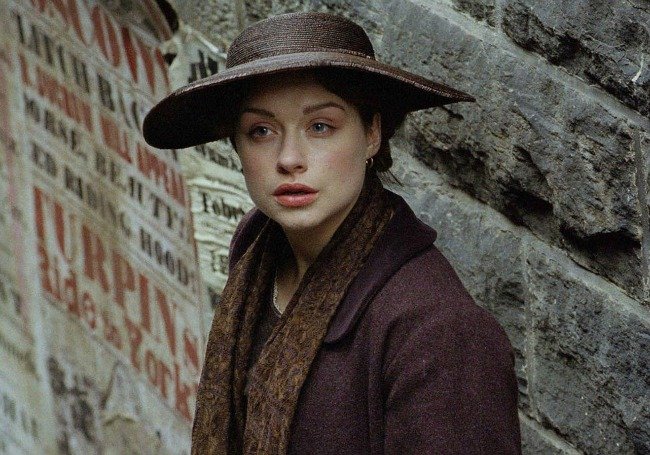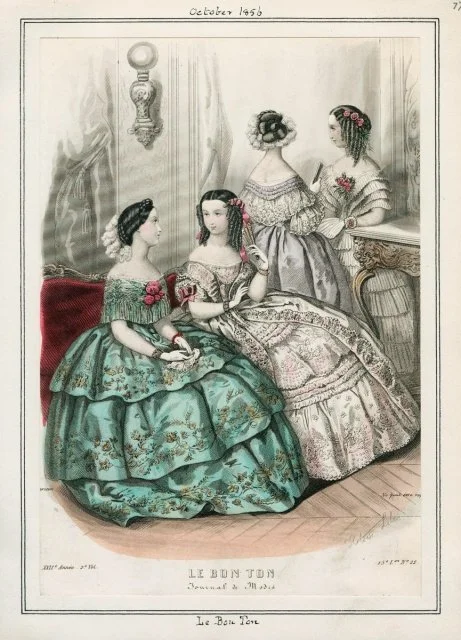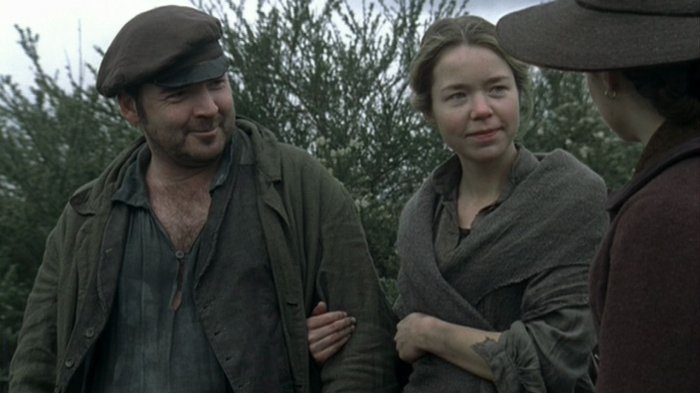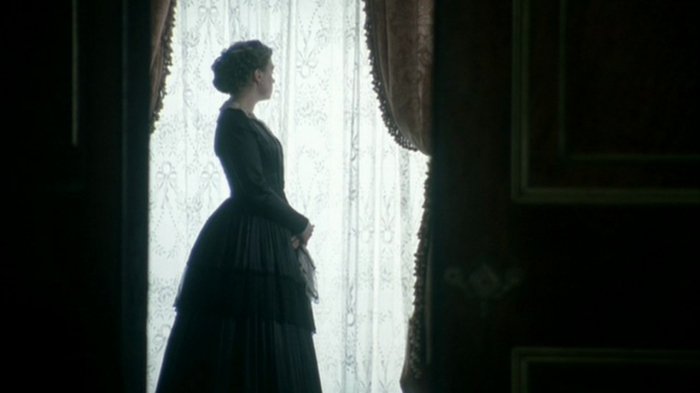For those of us whose lives were changed by the discovery of the BBC’s 2004 adaptation of North and South, it’s not easy to describe just how deep that impact was. What we do know is that all the elements of a masterpiece—the cinematography, the screenwriting, the music, the story, the settings, and the acting by the cast—combined to make some kind of magic spell that still lingers—and still entrances the unwary who happen upon it.
Just before the Best Screen Kiss Ever (from the BBC’s 2004 adaptation of Elizaeth Gaskell’s North and South)
Those fortunate enough to have caught the original airing in November of 2004 may well remember the ensuing clamor to know more about Richard Armitage, whose performance in the mini-series was nothing short of mesmerizing.
If you know little about what happened after that first airing, or want to reminisce about those thrilling days—here’s a link to an accounting of how the mad rush to discuss North and South on the BBC’s message board crashed their site!
Not all of us, by any means, were there to discover it when it first aired. One of the greatest misfortunes in the history of this great mini-series, is that the American public broadcasting system was going through something of a downturn, and did not air this masterpiece on their national program called “Masterpiece.” I will forever lament this calamity. Although North and South was eventually aired in certain regions of the US, it never hit the country by storm in one fell swoop. We’ll never know what could have happened!
The first heart-stopping view of the imposing John Thornton. (from the BBC’s North and South)
Over time, it has been largely up to Netflix, YouTube, and then Amazon Prime to distribute North and South, and win the hearts of Americans and thousands upon thousands of others in every corner of the globe.
I didn’t happen upon it until 2009, on Netflix. My story about that can be found here.
The effect of this perfect storm of a production has been truly astonishing. Richard Armitage’s fandom exploded, Internet forums like C19 and The Armitage Army buzzed with discussion for years afterward, fans started up blogs, and thousands of people discovered the Victorian author Elizabeth Gaskell and read her book.
And then there was the fan fiction. Oh. My. Goodness! I had not known about fan fiction before finding North and South, and duly spent several months of my free time gobbling up the continuation stories, variations, and what-ifs on the Internet forums I had desperately joined.
The fact that fan fiction began to flow from those captivated by the mini-series, is a high testament to its artistic power. This cinematic story stays with you long after the closing scene. The underlying passion of the otherwise in-control Mr. Thornton, and the depth of regret and sorrow that Margaret endures, sears into viewers’ hearts.
The longing to stay with this beloved couple longer and see them through various situations in our imaginations has compelled many to create their own version of events and publish them on sites such as An Archive of Our Own and Wattpad.
I’m still surprised at the outpouring of love for this film. I know that the leading reason my novel, A Heart for Milton, has been translated into Portuguese and Italian, is because of the ardent followers of the film who wanted more. And those of us who have published North and South fan fiction know that copies of our stories have been sold as far as Japan and India!
The love for this beautiful film production of North and South is truly worldwide—and ongoing. After 20 years, it still shines as one of the BBC’s best period dramas. It will surely live on as a well-loved classic for decades to come.
You’re invited to join North and South’s screenwriter, Sandy Welch, for an anniversary event sponsored by Elizabeth Gaskell’s House. Register here for the November 6th event. (Replays will be sent if you can’t make the live session.)



























